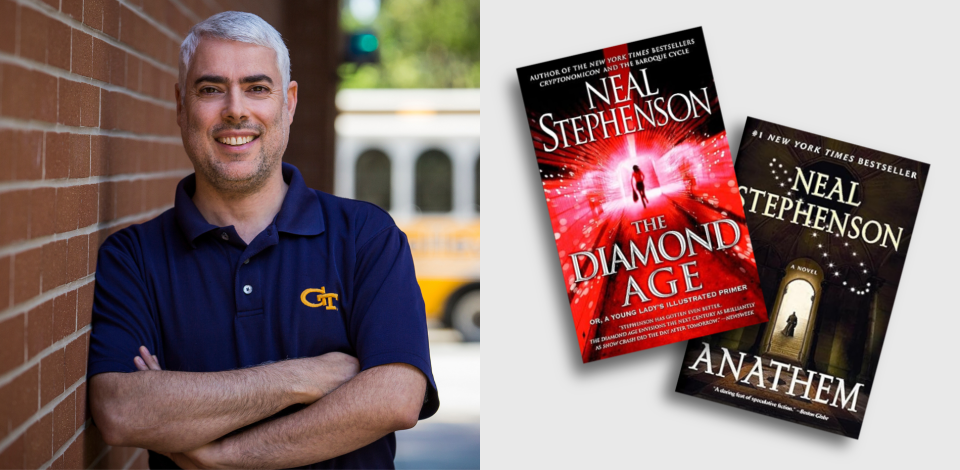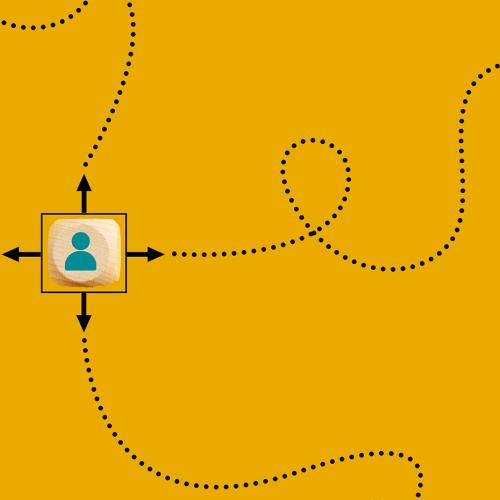Adventures in AI: A Futurist's Reading Recommendation
Online Master of Science in Analytics director Joel Sokol recommends a fictional futuristic read for professionals seeking thought-provoking ideas around AI and Education.

As Generative AI is integrated into daily life at an increased pace, I’m reminded of one of my favorite authors, novelist/futurist Neal Stephenson. Known for his works of speculative fiction, I’m recommending two of Stephenson's adventure stories, "The Diamond Age" and "Anathem." Both are enjoyable reads and stand out to me because of the element of futurism — in each book, Stephenson intricately immerses the reader in a future of his making.
Stephenson weaves together themes of nanotechnology and distributed computing in "The Diamond Age" (with some XR design and other topics thrown in), as well as globalized cultural structures, AI-directed learning, and the differences between learning solely from an AI, solely from humans, and a mix of each. Each of those elements makes the novel worth reading, but — in light of the current state-of-the-art in GenAI and its potential use in education — as a professor, I find Stephenson's theme exploring AI-based education, and learning for individuals and the masses to be especially timely and thought-provoking. This fall, I'll be teaching over 1,800 students in my one online course, but Stephenson’s writing in "The Diamond Age" makes me wonder what if, instead, I were designing AI-based learning from birth through college for orders of magnitude more students, or specializing it for a few selected ones?
My other recommendation, "Anathem," is the only adventure novel I can recall that contains a geometric proof! (But it's in an appendix, if you don't want to deal with it.) In addition to the book’s major themes around quantum physics, philosophy, and the potential of the human brain — plus other assorted minor themes like the ubiquity of mobile devices — Stephenson envisions the research university taken to an extreme as part of the world-building phase of "Anathem," and the concept helps make it my favorite of his novels. What would my life as a professor be like in his world?
In contrast to some of the other reading suggestions that focus on non-fiction and summarize the key points of each book, I'm not going to do that here — these are adventure stories, so no spoilers! I recommend reading both of them; they're fun, interesting, and thought-provoking reads.
Author: Joel Sokol
Editor & Digital Producer: Kat Bell

